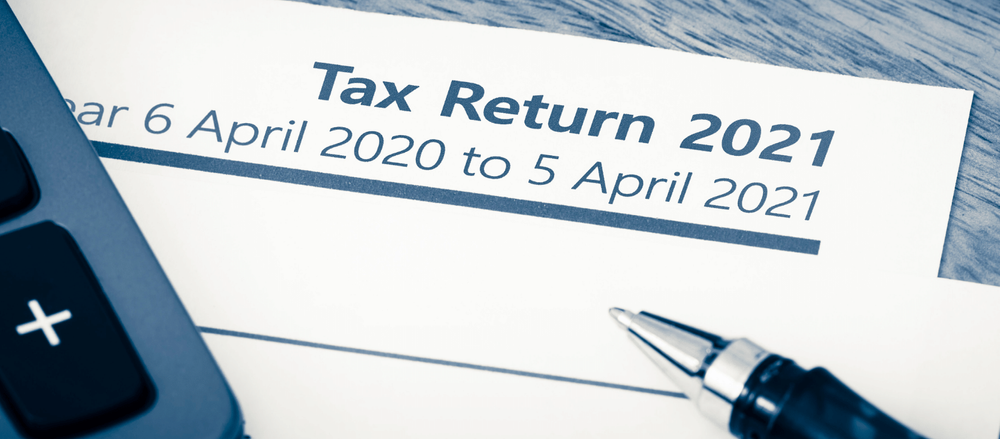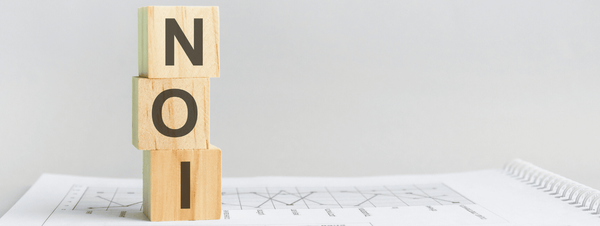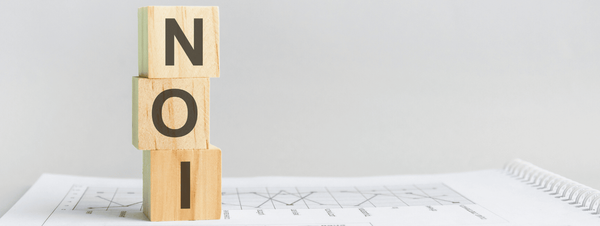Completing your landlord tax return: a step-by-step guide
If you make money from letting one or more properties, you need to declare your income and pay Income Tax on it each year.
If you’ve never completed a Self-Assessment tax return before, it can seem like a daunting prospect. However, the process is actually relatively straightforward as long as you’ve been keeping the necessary records.
In this article, we’ll explain what tax you need to pay as a landlord and when you need to declare your income, and provide a step-by-step guide to completing your Self-Assessment tax return.
What is Self-Assessment?
Self-Assessment is a system HMRC has put in place to collect Income Tax from people who don’t have their tax deducted from their earnings automatically through PAYE. This includes buy-to-let landlords, who need to declare the income they’ve made from renting out properties (minus any allowable expenses) over the course of each tax year.
What tax do I need to pay?
There are a few different taxes that you might have to pay as a landlord, most notably Income Tax, National Insurance contributions (NICs), Stamp Duty Land Tax (SDLT) and Capital Gains Tax (CGT).
Not all of these are paid through Self-Assessment, or every year — you’ll only pay SDLT when you buy a property, and CGT when you sell one.
Income Tax and NICs are paid annually based on the income you declare to HMRC. To declare your income and pay your taxes, you’ll need to register for Self-Assessment and complete a tax return every year.
Tax years and deadlines
The UK tax year runs from 6th April through to 5th April. The current tax year began on 6th April 2020, and will end on 5th April 2021.
The deadline for submitting your tax return is different depending on whether you file on paper or electronically, and is usually:
- Midnight on 31st October for paper declarations.
- Midnight on 31st January for electronic declarations.
Your tax return needs to tell HMRC about your earnings in the previous tax year. For example, you need to declare any income you made between 6th April 2020 and 5th April 2021 by 31st January 2022 (if you’re declaring online).
The deadline for paying the tax you owe is the same as the latest deadline for tax returns — so in this case any tax owed will have to be paid by 31st January 2022.
Do I need to pay income tax?
You have to report any rental income in a Self-Assessment tax return if the total you made over the year amounts to either:
- £2,500–£9,999 after allowable expenses, or
- £10,000 or more before allowable expenses.
You’ll pay Income Tax on any profit you make above the personal allowance of £12,570, at the following rates:
- 20 per cent on income between £12,571 and £50,270 (basic rate).
- 40 per cent on income between £50,271 and £150,000 (higher rate).
- 45 per cent on income over £150,000.
Technically, your first £1,000 in rental income each year is tax-free. However, if you claim this tax-free allowance, you can’t claim for any other expenses, so this is only useful for landlords whose total expenses come to less than £1,000.
Do I need to pay NICs?
As a landlord, you must pay Class 2 National Insurance if your annual rental profits amount to at least £6,515, and you run your property rental as a business. Your rental is classed as a business if all of the following apply:
- Being a landlord is your main job.
- You rent out more than one property.
- You buy new properties to rent out.
If your annual rental income is less than £6,515, you don’t have to pay NICs. However, you can choose to do so voluntarily, for example to make sure you get the full State Pension when you retire.
What if I pay corporation tax?
Some landlords choose to set up a limited liability company (LLC) to run their property rental business. This allows them to benefit from the more attractive Corporation Tax rate of 19%, rather than potentially paying 40% or 45% in Income Tax.
If you’re using this structure, you’ll need to submit a company tax return and follow the process for paying Corporation Tax.
Running an LLC comes with additional costs and paperwork, so it’s a good idea to consult a tax advisor before taking this step — you can read our guide to the pros and cons of incorporating for more information.
How to complete a Self-Assessment tax return: a step-by-step guide
If you’ve never submitted a Self-Assessment tax return before, you can follow the steps below to file your first tax return as a landlord.
Register for Self-Assessment
The first step is to register for Self-Assessment if you’re not already registered. You can do this online on the government website. You’ll be able to create your Government Gateway ID and password (if you don’t have one already) and should receive your Unique Taxpayer Reference (UTR) and activation code within about ten days.
Get your information in order
In order to file your tax return, you’ll need certain information about your income and expenses throughout the year. It’s important to keep detailed records so that you have all the information ready when you have to fill in your tax return.
HMRC says that you need to keep records of:
- The dates you let your property
- Any money you spent on the rental
- The amounts received in rent
You should also keep documentation that supports the figures you’ll provide to HMRC, including:
- Leases or rental contracts.
- Rent books and receipts.
- Invoices and receipts for any expenses.
- Bank statements.
- Mileage logs for trips relating to your rental business.
- Documents relating to when you bought the property.
You may want to consider using accounting software to keep track of this information and documentation, to make it easier for you when you come to submitting your tax return.
Work out what you can deduct
There are a number of allowable expenses that landlords can deduct from their income to determine the profit they made over the tax year. There have been some important changes to expenses landlords can change recently, so it’s important to be clear on what you can and can’t deduct.
Some of the main expenses that can be deducted are:
- Costs related to the general upkeep of the property (but not improvements to the property).
- Landlord insurance.
- Direct costs such as stationery and telephone expenses.
- Fees such as those from estate agents, solicitors or accountants.
For a full list of the expenses you can (and can’t) claim, read our guide to landlord expenses and allowances.
When you’ve determined which expenses you can claim, you can deduct these from your rental income to determine your profit.
Fill in your tax return
If you choose to submit a paper tax return, you’ll have to determine which forms you need to fill out. Everyone needs to submit form SA100, and landlords also need to fill in the UK property supplement, form SA105. You may also need to submit other forms depending on your situation.
Submitting your tax return online is much easier. The system reacts to the responses you give, removing sections that aren’t relevant, so you don’t need to worry about filling in the correct forms. You’ll need to tell HMRC about the income you’ve made from letting property (and other sources) over the tax year.
Pay your Income Tax
HMRC will calculate how much Income Tax you owe and send you a tax bill. If you fill out a paper tax return you’ll get the bill in the post, but if you do it online you can see how much you owe within the online system, under ‘View your calculation’.
The deadline for paying the tax you owe is usually midnight on 31st January. If your tax bill comes to more than £1,000, you’ll also need to make a ‘payment on account’ which goes towards your next tax bill. The deadline for this is usually 31st July.
The quickest ways to pay your tax bill are:
- Through your online bank account.
- Using internet or telephone banking.
- By making a CHAPS transfer.
- At your bank or building society.
- With a debit card or a corporate credit card (personal credit cards are not accepted).
You can find the full list of ways to pay on the HMRC website.
Making Tax Digital initiative: what’s changing?
Making Tax Digital (MTD) is a government initiative to simplify how businesses and individuals declare and pay taxes, which will come into full force by 2024. Its aim is to reduce accounting errors that lead to lost tax revenue.
Under the new system, landlords will have to keep detailed records of their income and expenses using MTD-compatible software, which will send a report to HMRC every quarter. The reports will show how much tax you owe, which could help you to budget for your annual tax bill.
At the end of the tax year, you’ll submit a final declaration confirming the accuracy of the quarterly updates you’ve already sent.
While submitting your first Self-Assessment tax return can seem daunting, the process is simple enough if you follow the steps above. Tax rules and guidelines for landlords do change frequently, and it’s a good idea to make sure you’re up to date so you understand your obligations and entitlements.
If you want to learn more about taxes for landlords, read our full guide to the taxes you have to pay, and our guide to the allowable expenses you can deduct from your profit.
Article by Annie Caley-Renn
At Home Made, we offer a hybrid lettings solution that adds value at every stage of the rental process. With our game-changing new landlord platform, The Property Wallet, we offer London landlords exceptional tenant-find and property management services for a low monthly fee.
- Avoid expensive upfront fees and spread the cost of marketing your property with the option to pay monthly.
- Free rent collection and arrears chasing.
- Sign off and see all charges and payments in your dashboard.
- Real-time updates on marketing, viewings, and offers.
Prices start from just £50+VAT/mo for tenant-find and £60+VAT/mo for management. Alternatively, you can pay a one-off upfront fee of £1,200+VAT for our tenant-find service.
If you would like to speak with us about your property needs, contact us via our website to find out how we can help. If you're ready to get started, book your free valuation here.
Book valuationCheck out more of our landlord advice here and follow us on Twitter, Linkedin, and Instagram for regular updates on industry compliance standards, market insights, and Home Made company news.
If you would like to speak with us about your property needs, contact us via our website to find out how we can help. If you're ready to get started, book your free valuation here.
Check out more of our landlord advice here and follow us on Twitter, Linkedin, and Instagram for regular updates on industry compliance standards, market insights, and Home Made company news.




